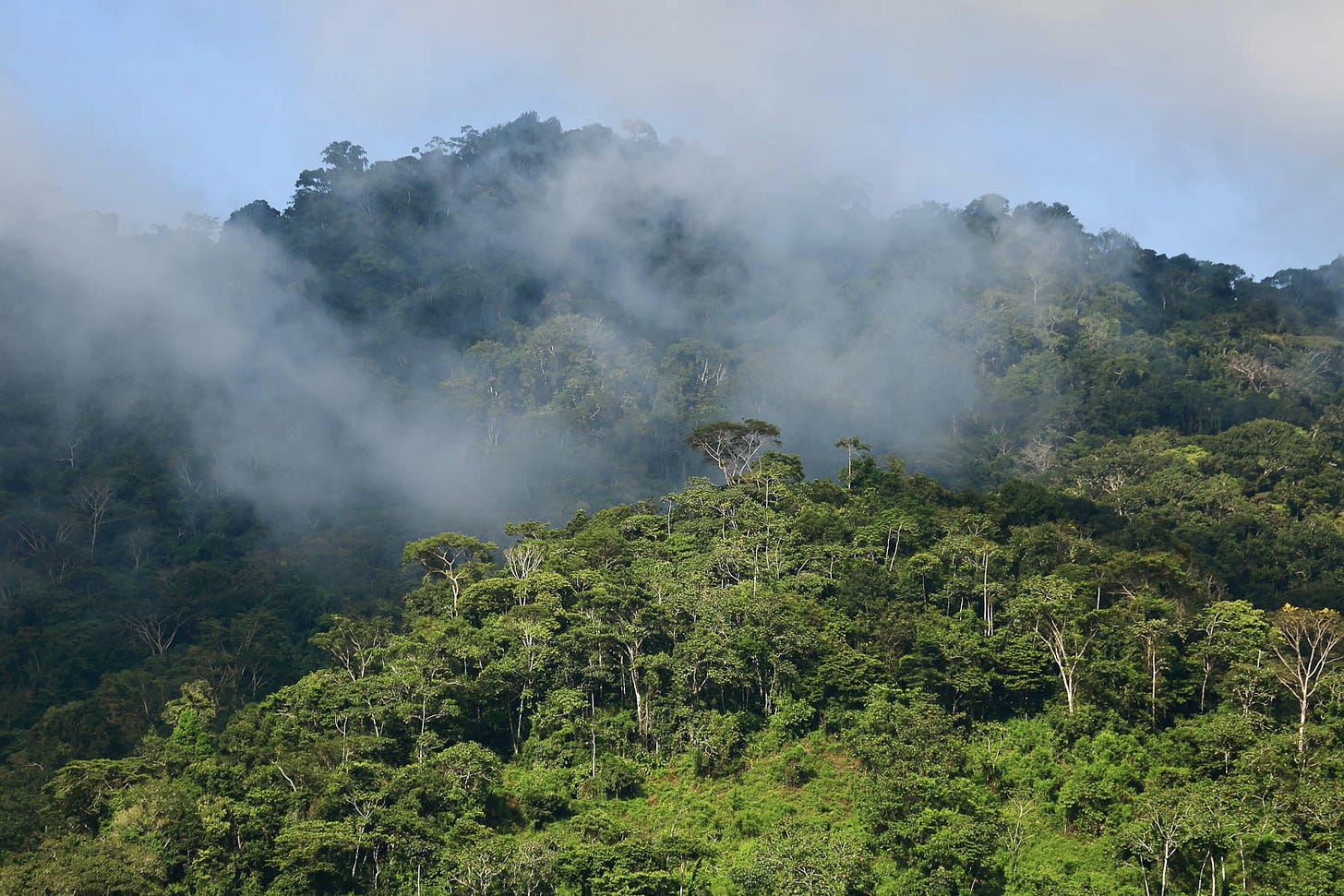When we left Google to work on climate, we wondered what that would actually entail.
Is it all about reading IPCC reports? Is it about policy and activism? Is it about suspending one's earthly desires and surviving on bread and water until the world's carbon emissions are at net zero?
There was no better way to find out than to dive in, and we got a 1-month contract with Pachama, one of the most well-known climate tech startups.
Business model: money for restoring nature
Pachama is in the business of carbon offsets for reforestation projects - paying forest owners for growing more forests or protecting existing forests that would have been otherwise cut down.
Forests account for 80% of Earth's total plant biomass - i.e. about 350 GtC. Increasing or preserving forested land would go a long way towards the planet's carbon goals, not to speak of the natural beauty and wildlife diversity.
The market of forest carbon offsets is excruciating to participate in. Becoming a certified offset provider normally means over $100k in upfront costs and involves sending a crew with tape measures into the forest. Buying offsets involves calling a guy who knows a guy.
Pachama makes things easier for both buyers and sellers. They use ML on satellite and LiDAR data to estimate forest biomass, and create a convenient online marketplace for offsets - you can buy an offset with a few clicks - though their main buyers are going to be giants like Microsoft.

Technology: data engineering and ML on a familiar stack
Tomas (Tomas Aftalion, CTO and co-founder) had a simple request for us: make everything better, as best we can.
Pachama's development stack is comfortably familiar: Google Cloud, Kubernetes, PostgreSQL, Tensorflow and NumPy, Github, Notion, Asana, and so on.
Armed with our experiences on the Cloud Dataflow and TensorFlow teams, Eugene set out to help design the next generation of Pachama's data and ML infrastructure, while Cass took on ML modeling improvements.
Measuring forest biomass is a hard problem, and doing so in a production-ready way is harder still. You need to train ML models on tens of thousands of complex-shaped geographic regions where manual measurements have been made, and apply them to terabytes of satellite and LiDAR imagery from data providers.

Of course, the whole thing has to stay up-to-date as new data arrives, and be reproducible, testable, debuggable, and amenable to local development and experimentation by engineers and data scientists.
Doing this right requires experience with building data/ML infrastructure - a skillset nearly every climate tech startup wants, as we later found out.
Culture
Pretty soon after joining we realized that Pachama is not a conventional company.
Conceived by the founders at Burning Man, no wonder that one of Pachama's closest-guarded secrets to success (shh!) is a 2-minute meditation at the beginning of team meetings. However, the culture went well beyond appearances.
A low-ego, non-territorial attitude of "let's make this good together" infused every interaction. Doubt that a method is correct? Let's look at it and find out! Want to replace a whole system somebody wrote? Sure, as long as the new thing is better!
Every 1:1 meeting with Tomas and Diego included them asking for feedback and suggestions on the way they are leading the team.
Elias, the forest science and data science wizard, revealed himself to also be a pilot and offered to fly us over the California projects.
Rolling up our sleeves
It took us about 1.5 weeks to ramp up, and in the remaining time we ended up:
Designing and prototyping a new data processing layer based on Apache Beam - after kick-starting some engineering workflow improvements modeled off of Google's best practices
Fixing a few bugs in Beam (something to which Eugene, as a former member of the Beam team, is no stranger), the pieces fell together at 5:56pm on the last Friday of the contract.
Proposing some modeling improvements and tuning using literature on model architectures for forestry that could be used to incorporate additional data sources.
Giving a cognitive walkthrough of pachama.com from the perspective of a retail purchaser, to identify small changes that would encourage and inspire greater offset purchases.
Like a regular startup, but better
Working with Pachama has dispelled many of our myths about working in climate.
In short, working at a climate startup is like working at a regular startup - the only thing different is that you never have to ask yourself "is my work meaningful?"
Our later conversations with other climate tech startups made it clear that, while Pachama's subject area and culture are unique, the other aspects are universal: same familiar technology stacks, required skills, pay and (for full-time roles) equity, team size, growth aspirations.
If you can work at a startup, you can work at a climate startup.
Are they hiring?
Glad you asked - yes, they are! As of writing, Pachama is looking for a machine learning engineer and for a senior full-stack engineer.
